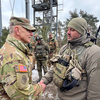NY attorney general calls for automatic absentee voting
On Saturday, New York’s attorney general, Letitia James, called on the State of New York to take steps to ensure eligible New York voters can take part in the scheduled April 28 Democratic presidential primary, as well as a handful of additional special elections around the state on that date, without risking the spread of the coronavirus disease 2019.
James is calling for a suspension of all in-person voting until further notice and, instead, to send every eligible voter an absentee ballot for the April 28 presidential primary and the five special elections scheduled on that date: to fill seats in the 27th congressional district, the 50th senate district, the 12th assembly district, the 31st assembly district, and the 136th assembly district.
“Voters shouldn’t have to choose between their health and the right to cast a ballot ...,” said James in a release from her office. “Let’s make it easier for every voter to cast their vote without spreading the coronavirus and jeopardizing public health. Democracy should not be suspended if there is a safe alternative.”
Assemblyman Joseph Lentol, a Brooklyn Democrat, this week announced that he would be introducing a bill in the legislature that would implement an automatic absentee voting system on an emergency basis for the April election, in an effort to stop the further spread of the coronavirus.
Currently, in New York, voters who wish to vote absentee must fill out a New York State Absentee Ballot Application and indicate that they cannot vote in person — at the polls — on the day of an election for one of six reasons: absence, temporary or permanent illness or physical disability, caring for someone who is ill or disabled, resident or patient of a Veterans Administration Hospital, detained in jail or prison.
Automatically sending out absentee ballots would not require the state to alter the statewide application by adding a “public health emergency” option, and would avoid the possibility of leaving polls open for voters to vote in person on Election Day — potentially further spreading the virus and risking public health, the release said.
Under Executive Order 202 — initially signed on March 7, which declared a state of emergency’ — the state can “temporarily suspend or modify any statute, local law, ordinance, order, rule, or regulation, or parts thereof, of any agency during a State disaster emergency, if compliance with such statute, local law, ordinance, order, rule, or regulation would prevent, hinder, or delay action necessary to cope with the disaster emergency or if necessary to assist or aid in coping with such disaster.”
While the original state of emergency is in effect until Sept. 7, the temporary suspension of certain statutes, local laws, ordinances, orders, rules, or regulations can only last for 30 days, therefore requiring new executive orders to be signed at the appropriate time intervals.
James is calling for a new executive order to be signed on March 29 — extending through April 28 — the suspension of certain election laws dictating that New Yorkers have to apply for an absentee ballot in an election for one of the cited reasons and that keeps polling locations open.
Across the nation, there are currently 33 states that already offer absentee voting with no reason necessary — making New York an outlier for only allowing vote-by-mail or absentee voting under a narrow set of circumstances, the release says.



